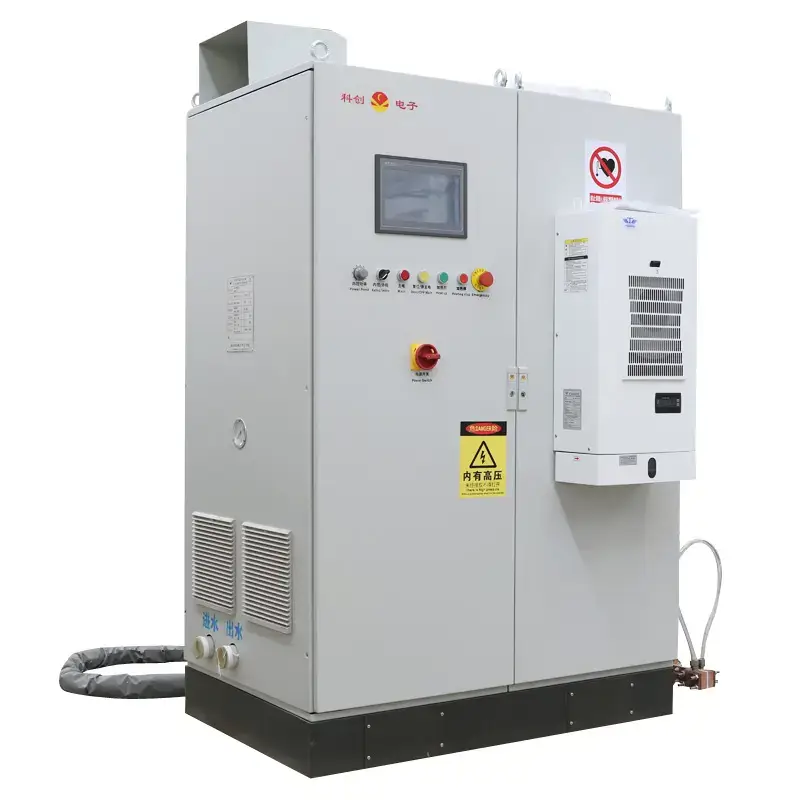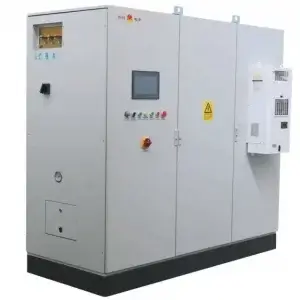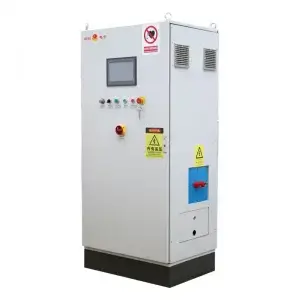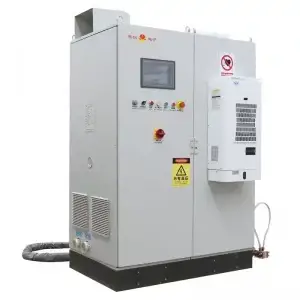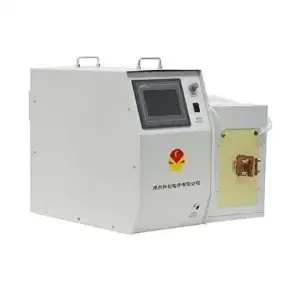Why Use an Induction Forging Machine?
During the induction forging process, round steel billets exhibit a temperature gradient between the surface and core due to varying heating rates. If this thermal differential becomes excessive, the surface may reach melting point while the core remains below the required forging temperature—a phenomenon known as the “black core” defect.
To ensure uniform cross-sectional temperature distribution, induction forging furnaces for round steel must incorporate a homogenization heating stage. This critical step minimizes the core-to-surface temperature variance, ensuring compliance with forging process specifications.
Achieving thermal uniformity requires specialized design of the induction heating coil. Key considerations include:
- Coil Geometry Optimization: Tailored coil configurations to enhance electromagnetic coupling and promote even heat diffusion
- Multi-Zone Temperature Control: Segmented heating zones with independent power regulation
- Frequency Modulation: Strategic selection of induction frequencies to balance surface penetration and core heating
- Precision Feed Rate Control: Synchronized workpiece movement through the coil to optimize residence time
These design methodologies ensure that round steel billets achieve consistent thermal profiles during induction heating, resulting in superior forging characteristics and reduced material waste. Advanced systems leverage real-time thermal monitoring and adaptive control algorithms to maintain optimal process parameters, further enhancing product quality and operational efficiency.
Key Features of KC Induction Forging Machines
-
Advanced Power Control
- Utilizes medium-frequency induction resonance technology for precise, non-contact heating
- Ensures uniform temperature distribution with rapid heating rates
-
Optimized Inductor Design
- Custom-engineered coils for maximum energy efficiency and fast heat transfer
- Supports both full-length and partial heating of round steel per process requirements
-
Environmental Sustainability
- Zero harmful emissions or byproducts
- Low energy consumption with 10%+ energy savings compared to conventional systems
- Minimal harmonic pollution for clean operation
-
Automation & Ease of Use
- Hydraulic cylinder auto-feed system for seamless operation
- PLC-controlled human-machine interface with multi-language support
- One-touch operation with optional manual override mode
- 24/7 continuous operation capability
-
Precision Temperature Control
- Dual-color infrared thermometer for real-time temperature monitoring
- Uniform core-to-surface temperature differential (<5°C)
- Advanced thermal management prevents deformation and cracking
-
Compact & Durable Design
- Space-efficient footprint with modular construction
- Industrial-grade components for extended service life
- Minimal maintenance requirements
-
Customization Capabilities
- Tailored inductor solutions for complex workpiece geometries
- Compatible with various billet sizes and forging processes
-
Quality Assurance
-
Reduced oxide scale formation through rapid heating
-
Consistent heating profiles for improved product quality
-
CE and SGS certified for international compliance
-
